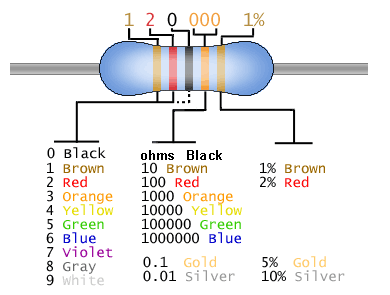One of the most pervasive inventions of modern history on which virtually ALL electrical/electronics is dependent is an invention by black inventor; OTIS BOYKIN.

Mr. Boykin is the inventor of the RESISTOR, a basic electrical component which can be found used in electrical equipment like Microwave ovens, clocks, computers, radios, TVs.
None of these products would be able to work without the use of Otis Boykin’s resistor.

http://www.talkingelectronics.com/projects/200TrCcts/images/PlantWater.gif
–
Few inventors have had the lasting impact of Otis Boykin. Look around the house today and you’ll see a variety of devices that utilize components made by Boykin – including computers, radios and TV sets. Boykin’s inventions are all the more impressive when one considers he was an African American in a time of segregation and the field of electronics was not as well-established as it is today.
Though he attended the Illinois Institute of Technology for a time, Otis Boykin never made it to graduation because he couldn’t afford tuition. Instead, Boykin went to work as an inventor. He received his first patent in 1959 for a wire resistor that allowed a precise amount of electricity to flow to a component. Two year later, he created an even better resistor that could be manufactured inexpensively and withstand extreme temperature changes and shock. A low-cost product that was more reliable, the invention brought Otis Boykin to the forefront of American electronics.
Consumer electronics manufacturers, the United States military and IBM all placed orders for the resistor. It would come to be used in household appliances, computers and guided missiles – and is still used in many of those devices to this very day. But, perhaps most importantly, a version of his resistor was used in the invention of the pacemaker. That device, which keeps the heart beating regularly through electronic pulses, has helped to extend the lives of hundreds of thousands of individuals.
And Otis Boykin’s accomplishments didn’t stop there. He continued to invent throughout the duration of his life (which ended in 1982), working as a consultant for firms in America and Europe. All in all, he earned 11 patents and invented 28 different electronic devices.
To observe how important and pervasive Mr. Boykin’s resistor is used throughout all electronics, even the simple LED circuit below must use two resistors to work.
http://www.talkingelectronics.com/projects/200TrCcts/images/SimplestCct-2TrPhoto.gif
A modern computer will literally use millions or perhaps billions of resistors.
None of the most basic and common electrical/electronics products used in America and the world today would be possible without the resistor.


There is a number of black men who’s contribution in various faculties has changed the course of history. The 2 that stand out for me in the field of cardiology are Dr Vivien Thomas and Dr Hamilton Naki, these talented and self taught black each assisted in what was to be the first successful heart surgeon and the first heart transplant. Dr VT assisted dr Blalock in the US during the early 40’s while Dr HN assisted dr Chris Barnard in South Africa mid-end 60’s. They both were gardeners at their respective place of employment and mastered the art without any formal education.